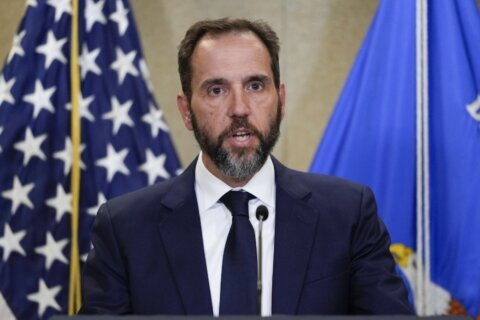If you’ve made the decision to work with a financial advisor, congratulations are in order. It’s no small feat to learn more about the value a financial advisor can provide and determine whether a relationship is a good fit. You’ve taken the first step toward securing a plan to improve your personal finances.
Experienced advisors have seen the full spectrum of individuals’ financial decisions, so you don’t have to worry about any missteps up to this point. Most people at one time or another wish they could undo some of their financial decision-making.
Here are seven strategies to help you prepare for your initial meeting with a financial advisor:
— Look into the advisor’s FINRA record.
— Examine the advisor’s social media profiles.
— Don’t worry about bringing financial statements yet.
— Get clarity on what you need help with and why.
— Determine which criteria are most important to you.
— Create a list of questions to ask.
— Do a gut check after the meeting.
[SUBSCRIBE: Get the weekly U.S. News newsletter for financial advisors. ]
Look Into the Advisor’s FINRA Record
Before you fall in love with an advisor’s website, check their regulatory background to see if there’s anything of concern. It’s prudent on your part to see if there are any red flags with the firm’s registration.
Since financial advisory businesses must be registered with the Securities and Exchange Commission or state securities offices, you can use the BrokerCheck resource from the Financial Industry Regulatory Authority, or FINRA. It’s a free tool to help you research the background and experience of financial brokers, advisors and firms. BrokerCheck gives you a snapshot of whether the advisor or firm is registered, as required by law, to sell securities, or stocks, bonds and mutual funds. It also shows whether a professional can offer investment advice, financial planning services or both.
Examine the Advisor’s Social Media Profiles
Information on most financial advisory firms is at your fingertips online. You can perform a search well before your first meeting. Review the firm’s mission, scope of services, background of employees, pricing and overall business practices. This can help you gather the necessary information about their experience, outside interests, communication style and online professionalism.
It’s all about helping you make an informed decision. You will probably share more information about yourself with your advisor than with your closest friends, so it’s vital that this person is a good match for your needs. Once you’re comfortable with your background findings, it’s time to get ready for the first meeting.
Don’t Worry About Bringing Financial Statements Yet
Most financial advisors will use the first meeting (i.e., the “get acquainted” meeting) to learn more about you and your financial situation. In many cases, this meeting is designed to determine whether the relationship is going to benefit both parties. You should have a general idea of the kinds of accounts you have or what’s causing your financial pain points.
If an advisor is asking you to bring all of your financial statements to this initial meeting, it’s reasonable to question that logic. Getting to know the advisor is a reasonable first step, and even if your initial meeting is brief, it is engineered to give you a feel for how the advisor operates. If it makes sense to move forward, there will be time to gather all of your financial documents.
Get Clarity on What You Need Help With and Why
“Think about where you want to be. This sounds like an easy question, but as much as possible you want to give this some thought,” says Reggie Fairchild, president of Flip Flops and Pearls, in Mount Pleasant, South Carolina. You can avoid feelings of uncertainty if you take some time to establish your goals for the future.
You may be looking to optimize your retirement savings or get your cash flow tuned up. Where you want to be and why is the key to moving forward from your current situation. Maybe something has triggered you to reach out to a financial advisor. The more detail you can provide, the better, so that the advisor can present you with the best possible solutions. The advisor should be able to craft a solid plan of action based on your goals.
Note that most people have something they’d like to change in their financial lives. You don’t have to have it all together before the first meeting. “I think a lot of clients show up feeling guilty that they don’t have their whole financials together, that everything isn’t perfectly in QuickBooks,” says Fairchild. “So a lot of people say, ‘I’ll get a financial planner when I have my whole financial plan together.'” That’s why financial planners exist: to help you figure out what to do.
In other words, don’t feel guilty. Just show up and be transparent about what you need help with and why.
Determine Which Criteria Are Most Important to You
“What I would encourage people to do is have some criteria ahead of time on how they’re going to evaluate an advisor,” says Robert Lindstrom, founder of Provision Financial Planning in Towson, Maryland. These criteria will be different for different people. But you should have some points on which to base a decision about the advisor you are meeting with, says Lindstrom.
Create a List of Questions to Ask
“There are a lot of titles in our industry that sound similar,” says Lindstrom. Faced with choices of fee-only, fee-based and fiduciary advisors, how do you sort through the differences? There’s a lot of education that needs to happen. If you’re unclear on certain terms, bring those questions to your first meeting, so the financial advisor can unpack the terms for you.
Answers to these questions will give you deeper insight into how the advisor works, solves problems and manages their firm:
1. How do you best help your clients?
2. What can I expect in working with you?
3. What is your professional background?
4. How many clients do you currently work with?
5. How much do your services cost?
6. Do you have a team? Who will I be working with?
7. Tell me how you handled a client mistake you or your team made.
8. Tell me how you were able to help a client with similar financial goals to my own.
Every financial advisor is different, but individuals shouldn’t feel pressure to hire an advisor during the first meeting. If an advisor is pushing you to make a decision by the end of the initial meeting, that could be a red flag. What’s the rush? Make sure that you have enough time to get all of your questions answered before you make a choice. Remember, this decision is a two-way street.
Do a Gut Check After the Meeting
Review what happened during the conversation. Did the advisor answer all of your questions? Did you get a good vibe, or was something said that made you feel uneasy? Working with a financial advisor can be transformative, and it’s not a decision to take lightly. Make sure you’re feeling confident before you decide to move forward.
Follow these steps during your first meeting with an advisor, and you’ll set the relationship up for success while moving closer to realizing your financial goals.
More from U.S. News
Advisors Turn to Options to Protect Capital and Even Boost Returns
Q&A: The Investment Case for Robotics
How to Find a Financial Risk Management Advisor
Prepare for a First Meeting With a Financial Advisor originally appeared on usnews.com
Update 07/22/22: This article was published at an earlier date and has been updated with new information.







